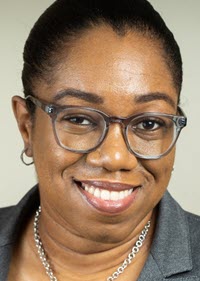Abstract
Excerpted From: Jarienn A. James, Eliminating Racial Assault of Black Bodies in Law School Through CRT Based Professionalism, 72 UCLA Law Review Discourse 150 (2024) (94 Footnotes) (Full Document)
 The legal academy's failure to create professional law school environments embracing the tenets of Critical Race Theory (CRT) sustains the racial assault on Black Bodies. The legal academy has a duty to provide professional law school environments because the law school is the most common foundation for all legal training. For the purposes of this essay, racial assault refers to “race-based unprofessionalism” or “race-based unprofessional attacks”--synonymous terms introduced and defined in this essay as--targeted acts toward Black attorneys by non-Black attorneys that white colleagues would not be subjected to in the law school environment. These acts occur solely because of the Black attorney's race and low ranking in the American caste system. More specifically, it is the caste system that decides who gets the “power,” the “respect”, and the “assumption of competence” in legal academia. These acts are best reflected in moments where Black attorneys say, “This never would have happened to a white attorney.” CRT examines systemic racism and causes individuals to rethink policies and procedures with an antiracist mindset. Therefore, embracing the tenets of CRT can help to improve law school environments and protect Black Bodies from race-based unprofessionalism.
The legal academy's failure to create professional law school environments embracing the tenets of Critical Race Theory (CRT) sustains the racial assault on Black Bodies. The legal academy has a duty to provide professional law school environments because the law school is the most common foundation for all legal training. For the purposes of this essay, racial assault refers to “race-based unprofessionalism” or “race-based unprofessional attacks”--synonymous terms introduced and defined in this essay as--targeted acts toward Black attorneys by non-Black attorneys that white colleagues would not be subjected to in the law school environment. These acts occur solely because of the Black attorney's race and low ranking in the American caste system. More specifically, it is the caste system that decides who gets the “power,” the “respect”, and the “assumption of competence” in legal academia. These acts are best reflected in moments where Black attorneys say, “This never would have happened to a white attorney.” CRT examines systemic racism and causes individuals to rethink policies and procedures with an antiracist mindset. Therefore, embracing the tenets of CRT can help to improve law school environments and protect Black Bodies from race-based unprofessionalism.
Further, Leah Goodridge's foundational Essay “Professionalism as a Racial Construct” highlighted how professionalism is used to control Black attorneys in practice through selective offense, and by imposing a high threshold to withstand bias and discrimination. Building on Goodridge's work, this Essay focuses on the issue of unprofessionalism toward Black attorneys in legal academia. If the right environment is established in law schools, it can lead to a positive cultural change within the legal profession.
Part I of this Essay highlights current attorneys' experiences in academia. Part II then shows a generational connection between the experiences of current and past attorneys in academia. Part III explores tenets of CRT in a professional law school environment. Part IV identifies the inadequacies of current CRT and professionalism rules guiding the legal profession. And Part V proposes practical steps, to create CRT Based professional law school environments to help eliminate race-based unprofessional attacks.
[. . .]
You teach a little by what you say.
You teach more by what you do.
You teach best by who you are.
A self-assessment on who we are as a legal academy is long overdue. Nevertheless, we should take a moment now to reflect on who we are. An understanding of who we are and who we can become will guide us on a path to a better professional environment. If our actions do not reflect who we are, we must work to aggressively fix them. We must hold our colleagues accountable when they engage in race-based unprofessional attacks. We must sound the alarm and work arduously to ensure that we create professional law school environments without race-based attacks.
Race-based unprofessionalism must be eliminated from the legal academy. It is time for the legal academy to create a new system of governance within law schools. True change can only begin by a commitment to antiracism and by embracing the tenets of CRT. Such a foundation will be a strategic step toward the advancement of the profession and the safety of Black attorneys in law school.
Still, it is only a step, for there is much more work to be done. A professional law school environment embracing the tenets of CRT is fertile ground for the elimination of race-based unprofessional attacks and eventually the elimination of racism from within the legal academy. However, there are many more seeds to be planted for the elimination of racism from law schools and ultimately the profession. When each person feels valued and has a sense of belonging, we can then work together to eliminate racist structures. I know we can do it. But will we?
Jarienn A. James, LL.B., LL.M., J.D., is the Assistant Dean for Academic Affairs at Case Western Reserve University School of Law.


